Abstract
This paper describes a pilot study on using an innovative card game called “Cartedinal” to teach speaking skills (under the domain of ‘English for Academic Purposes’ or ‘EAP’) for second-language learners. Cartedinal was first introduced and briefed by its innovator to a selected group of final-year, English for Professional Communication students at Universiti Teknologi MARA (UiTM) Melaka. In addition, the card game innovator also joined as a moderator and facilitator during the entire demonstration sessions. A total of 24 local UiTM Melaka students played Cartedinal in six different sessions; each session involved four students who did not have any background knowledge regarding the card game. Four sessions were recorded and another two sessions were observed live with consent; the recorded sessions were held at different places but the live observation took place in the researchers’ office. Throughout the sessions, the students had the total freedom to play the card games using their own creativity, skills, and knowledge – apart from not allowed to refer to any form of dictionary. Based on the observation and post-game interviews, findings showed that as an innovative teaching aid, Cartedinal had positive outcomes and expectations from the players. In addition, there were also a few setbacks pertaining to its rules and gameplay being highlighted during and after the game sessions. The setbacks were addressed, and immediate changes were made to finalize the card game before being prepared to be used in a future, larger-scale, experimental study.
Keywords: Card games, Cartedinal, observation protocols, pilot study
Introduction
Using card games to teach languages for language learners is not something new (Gaudart, 1999). However, many have also considered card games to be somewhat conventional as more modern and innovative games have been innovated as teaching aids (Yusof et al., 2019) for the new generation of students – there are even digital card games for educational purposes that educators and students can freely use (Kordaki & Gousiou, 2017) which are not limited to language subject matters (Thomas et al., 2019).
Specifically for teaching EAP in improving students’ speaking skills, there have been aplenty of options and alternatives when it comes to card games, such as Quartet Card Game (Santoso, 2019), U-NO-ME card game (Lukas et al., 2020) and Cue Card game (Pratiwi, 2021). Recognizing the effectiveness of card games in teaching EAP’s speaking skills, researchers have innovated with their own card game aptly named “Cartedinal”. This pilot study's concept was inspired by "Jackbox.tv" (Jackbox games, 2023) and "Cards Against Humanity" games (Cards Against Humanity LLC, 2023) using the interaction components of players-audience from Jackbox.tv and the physical card game part of Cards Against Humanity, as well as both games' gameplay structure of building prompts via players' ideas and inventiveness.
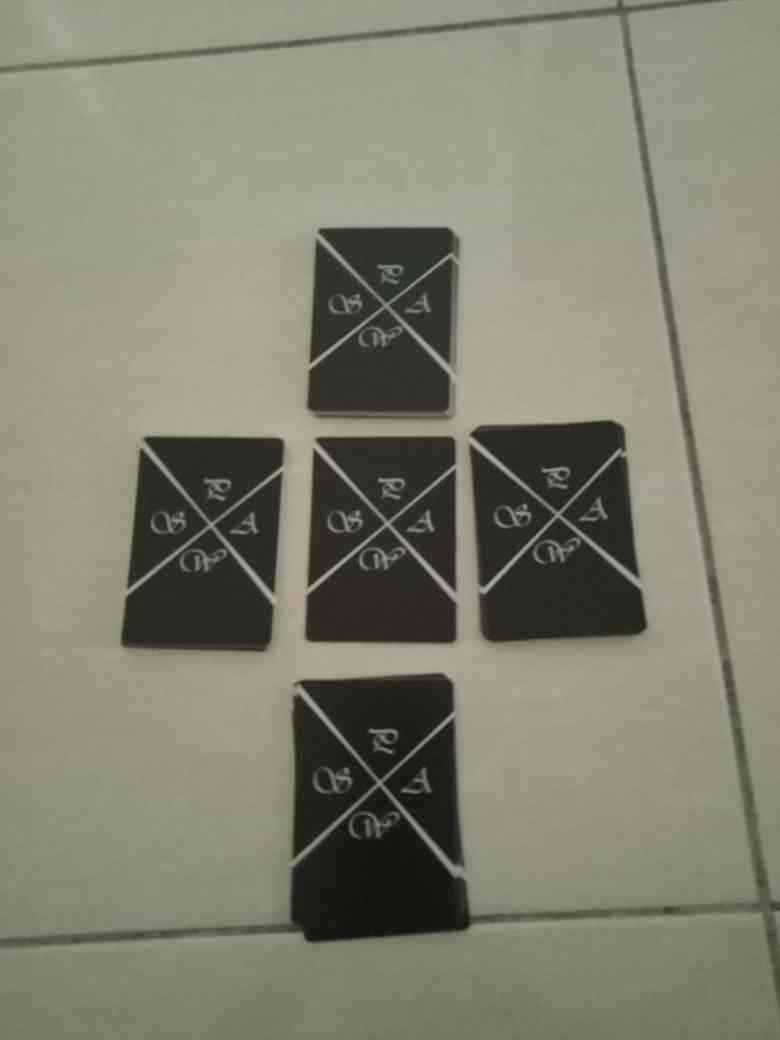
Figure 1 shows the final product design of Cartedinal, which is basically a card game that involves unique tasks with guidelines and conditions; what makes it different the other card games is the fact that the tasks can actually be edited or changed during the in-game plays to promote motivation and creativity. Figure 2 outlines the rules on how to play Cartedinal.
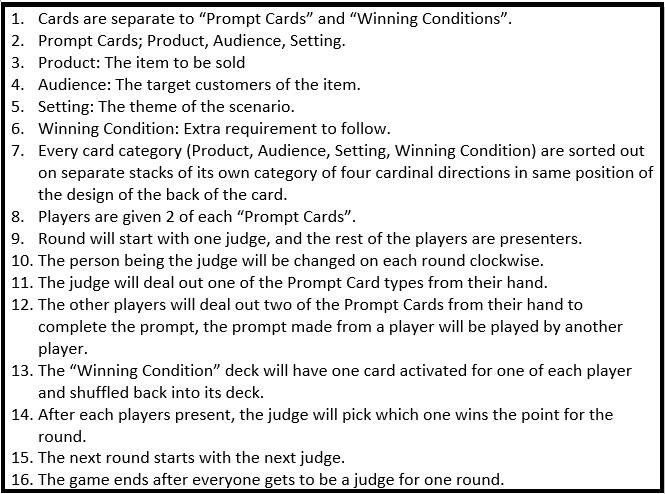
Problem Statement
For the practitioners in the education industry, recovering from Covid-19 pandemic has not been easy even after a few years. With more and more Malaysian’s higher learning institutions (HLIs) are opening their doors for both staffs and students alike to engage in physical environments (Bernama, 2022), everyone is bound to start adapting and adjusting their professional lives back into their mix within university compounds.
These decisions came about after many studies have been conducted regarding their online undertakings during the heights of the pandemic (Johari & Jamil, 2022a) (Muhamad et al., 2021). Educators and educational institutions throughout the globe are actively advancing from the recent Covid-19 epidemic with several activities and strategies for the next years. The epidemic has affected the overall nature of HLIs. Covid-19 has shaken the world of learning. It has provided both obstacles and opportunities. The many efforts made by universities and HLIs are laudable since they proved that, despite the disruption, they were and continue to operate at the highest potential levels of efficiency and effectiveness.
Apart from online programs which have been initiated by universities for their students over the last three years (Johari & Jamil, 2022b), there were also gamification-based methods which have been introduced (Naseri et al., 2022) that had generated a lot of students’ perceptions of the use of gamifications (Devendren & Mohamad Nasri, 2022) in their learning processes. Specifically focusing on using mobile-assisted language learning to improve students’ speaking skill, there were also studies that had been done to compare before and after Covid-19 pandemic times (Rajendran & Md Yunus, 2021).
This research project catapults the notions above by innovating a card game to teach speaking skills under the domain of EAP.
Research Questions
This pilot study questions whether the innovative card game Cartedinal can be used as a teaching aid to improve university students’ speaking skills.
Purpose of Study
The purpose of this pilot study is to address any possible flaws, setbacks, and settings that can be improvised for future implementations by observing a selected group of students playing Cartedinal with their course mates.
Research Methods
A pilot study typically requires a minimum number of participants; Julious (2005) deduced that 12 participants per group would be suitable for a pilot study. With that consideration, this study involved 24 participants. All of them were final-year students enrolled in Diploma in English for Professional Communication (LG120) program at Universiti Teknologi MARA Melaka. They were chosen because of their English language proficiency is averagely higher than students from other programs, which is vital in testing the difficulty levels of the tasks available in Cartedinal. A mix of two observation protocols has been utilized for this project; unstructured direct observation (Holmes, 2013) and recorded video observation (Bachman et al., 2016).
For the very first batch of Cartedinal prototype, unstructured direct observation was utilized where researchers invited the two groups of four LG120 students to play the card game in researchers’ office. After they have given their prior consent and confirmed their availability, they were briefed about the Cartedinal; they were also given the flexibility to ask any question regarding the rules during the in-game sessions. Throughout the sessions, researchers were there as facilitators to navigate the gameplay until it finishes. Comments, feedbacks, questions, and complaints were jotted in notes for compilation. After both sessions have finished, several tweaks were made to improve on the physical conditions and arrangements of Cartedinal – the second batch of Cartedinal prototype was done after two weeks.
For the second batch of Cartedinal prototype, researchers again invited more students to volunteer for the playing session. However, the observation was changed to recorded video in order to accommodate the students’ availability – two sessions were recorded in their respective hostel rooms; one session was recorded in one of the university library’s private study rooms; and the last one was recorded at a student cafeteria. Similar to the previous direct observations, all their live, auditory feedbacks have also been duly recorded in the videos.
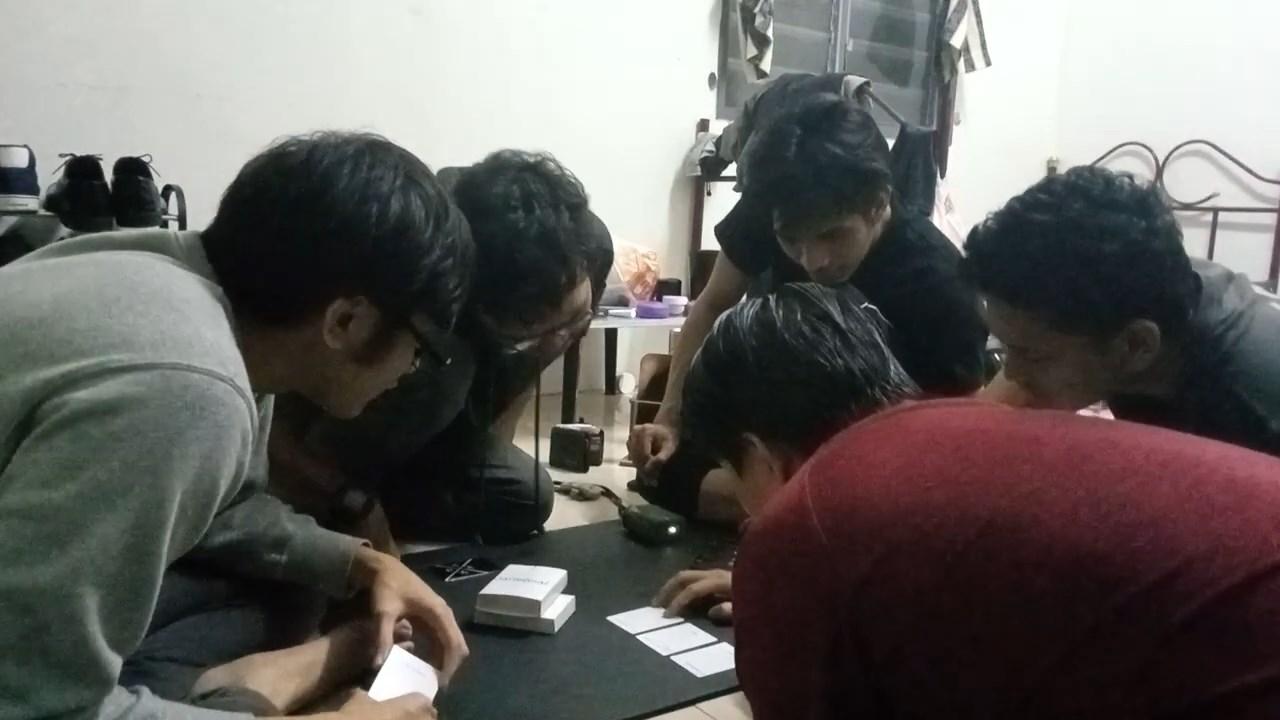
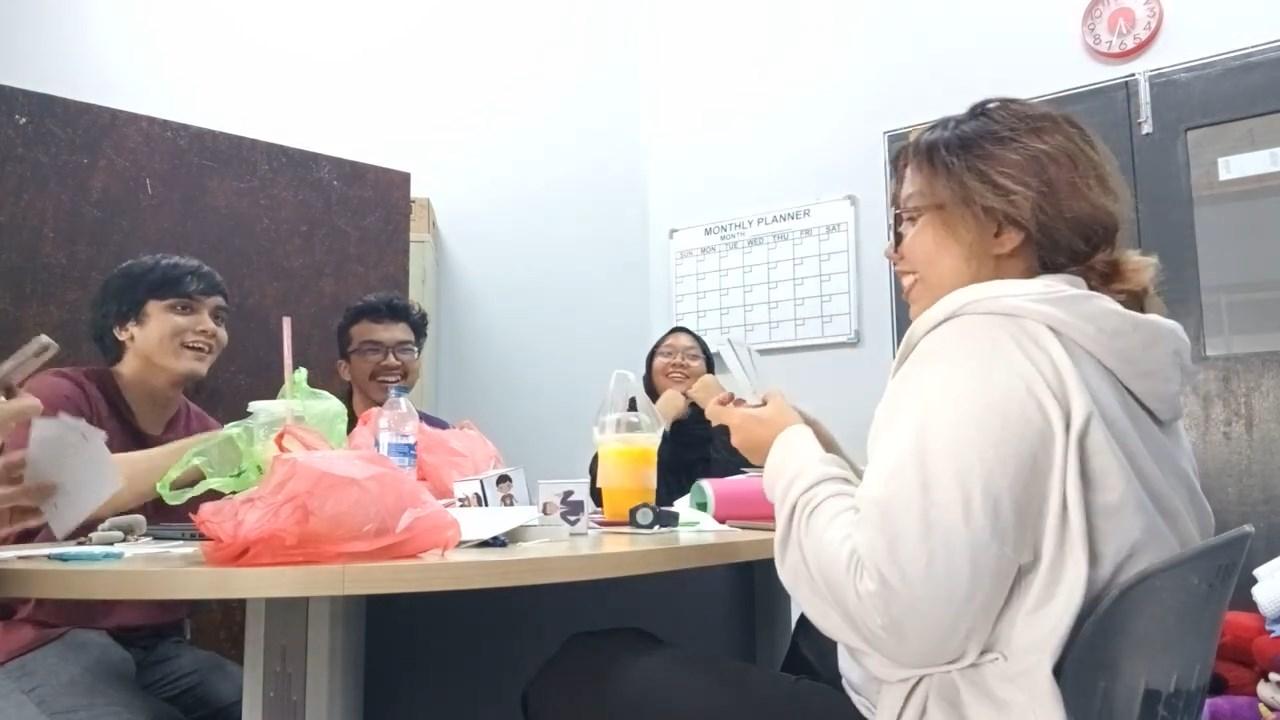
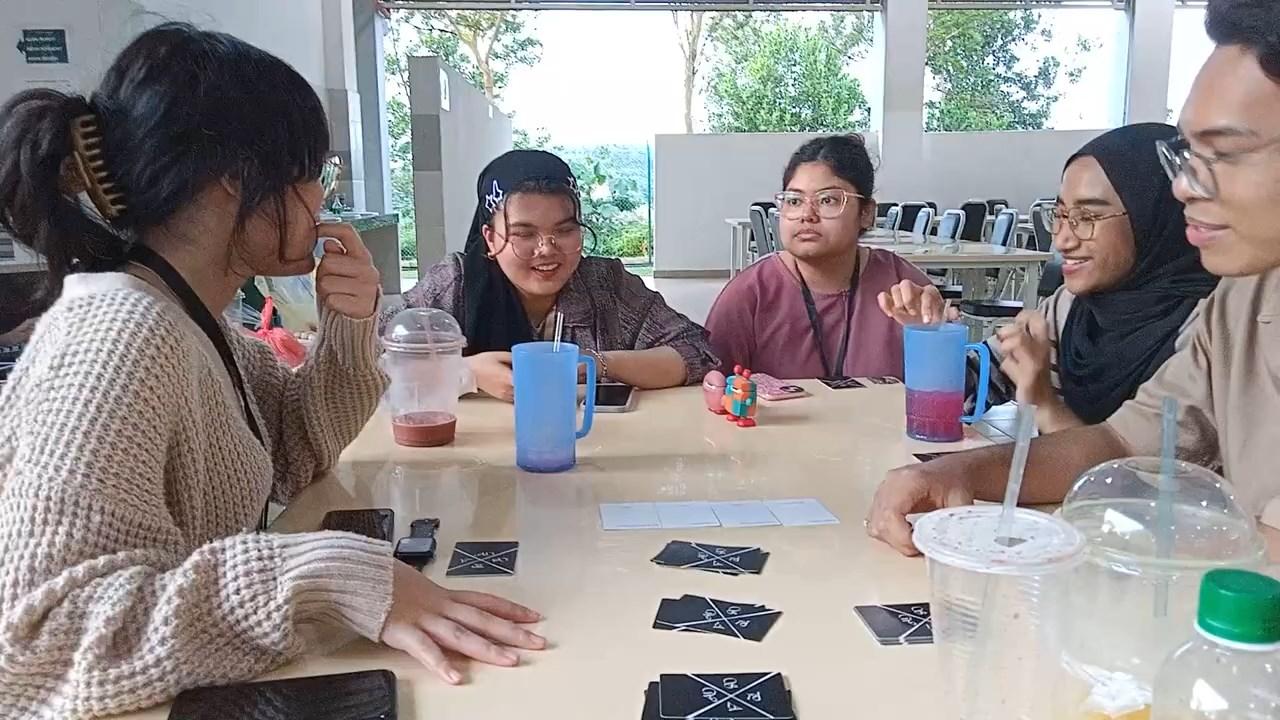
Findings
Based on the observation protocols conducted, additional notes were jotted during-and-after all the live sessions and the recorded videos were observed. Following the said events, the researchers have triangulated a set of thematic codes that have been categorized into three separate categories. The main objective is simply to classify any and from the interpretation of the volunteers’ oral feedbacks. This procedure will not have any post-discussion or analysis as the data (every volunteer’s feedbacks) will be accepted as they are – honest opinions and comments based on their perceptions, which can easily differ from other students.
Conclusions
Based on the analysis of this pilot study, it can be perceived that it definitely has certain levels of setbacks and flaws that can or need to be addressed. It is within the researchers’ expectations to have mixed feedbacks because it is a pilot test without any particular background data. One unexpected outcome would be the absence of feedbacks concerning the aesthetic quality of Cartedinal’s physical traits – it was almost never mentioned despite it being introduced as a card game. Professional industry players and academics alike have always been focusing on the first impressions whenever novel games such as innovative card games are being introduced (Peters et al., 2020), with particulars like the games’ material quality, colours and designs, sizes and weight, and also retail selling prices.
After careful considerations, the researchers would conduct more vigorous discussions and experiments with more varied demographics; the contents and tasks are also open to possible adjustments. An important possibility would be the inclusion of specifically-tailored contents for specific target groups of customers, for instance medical-based tasks for customers from the medicine world (Li et al., 2021) such as employees in the medical industry, academicians doing healthcare-related studies, and university students enrolled in medicine-related courses like nursing, physiotherapy, and pharmacy programs. The list of potential domains may as well be expanded to a more diverse domains (but not limited to) manufacturing (Ya'acob et al., 2017), management, and technology (Khairuddin et al., 2017) areas.
Acknowledgments
The financial budget for this project was funded by Universiti Teknologi MARA Melaka (Geran Dalaman TEJA 2022; grant number: GDT2022/1-11).
References
Bachman, R., Schutt, R., & Plass, P. (2016). Qualitative methods & data analysis. https://www.sagepub.com/sites/default/files/upm-binaries/59781_Chapter_8.pdf
Bernama. (2022, June 10). Higher Education Ministry allows universities to decide on resumption time for physical classes. https://www.malaymail.com/news/malaysia/2022/06/10/higher-education-ministry-allows-universities-to-decide-on-resumption-time-for-physical-classes/11712
Cards Against Humanity LLC. (2023). Cards Against Humanity. https://www.cardsagainsthumanity.com/
Devendren, A., & Mohamad Nasri, N. (2022). Systematic review: Students' perceptions of the use of gamification. International Journal of Academic Research in Progressive Education & Development, 12(8), 144-164. DOI:
Gaudart, H. (1999). Games as Teaching Tools for Teaching English to Speakers of Other Languages. Simulation & Gaming, 30(3), 283-291. DOI:
Holmes, A. (2013). Direct Observation. In F. Volkmar (Ed.), Encyclopedia of Autism Spectrum Disorders (pp. 980-981). Springer.
Jackbox games. (2023). Jackbox games. Retrieved from https://jackbox.tv/
Johari, M., & Jamil, N. (2022a). Practicality of Ad Hoc Online Assessments for Teaching ESP in Online Flipped Classrooms during COVID-19. Proceedings of International Academic Symposium of Social Science 2022. MDPI Proceedings, 82(1), 91. DOI:
Johari, M., & Jamil, N. (2022b). Problem-Based Learning (PBL) during Online Teaching. Proceedings of International Academic Symposium of Social Science 2022. MDPI Proceedings, 82(1), 91. DOI:
Julious, S. A. (2005). Sample size of 12 per group rule of thumb for a pilot study. Pharmaceutical Statistics, 4(4), 287-291. DOI:
Khairuddin, M. H., Yahya, M. Y., & Johari, M. K. (2017). Critical needs for piston engine overhaul centre in Malaysia. IOP Conference Series: Materials Science and Engineering, 270. DOI:
Kordaki, M., & Gousiou, A. (2017). Digital card games in education: A ten year systematic review. Computers & Education, 109, 122-161. DOI:
Li, T., Pei, X., Chen, X., & Zhang, S. (2021). Identifying End-of-Life Preferences Among Chinese Patients With Cancer Using the Heart to Heart Card Game. American Journal of Hospice and Palliative Medicine®, 38(1), 62-67. DOI:
Lukas, B. A., Patrick, F. I. A., Chong, G., Jaino, N. B., & Yunus, M. M. (2020). Using U-NO-ME Card Game to Enhance Primary One Pupils' Vocabulary. International Journal of Learning, Teaching and Educational Research, 19(5), 304-317. DOI:
Muhamad, N., Amran, M. S., & Surat, S. (2021). Teacher Commitment, Satisfaction and Stress During the Covid-19 Pandemic. International Journal of Academic Research in Progressive Education and Development, 10(3). DOI:
Naseri, R., Raja Abdullah, R., & Mohd Esa, M. (2022). The effect of gamification on students’ learning. International Journal of Academic Research in Progressive Education & Development, 12(1), 792-797.
Peters, D., Loke, L., & Ahmadpour, N. (2020). Toolkits, cards and games - a review of analogue tools for collaborative ideation. CoDesign, 17(4), 410-434. DOI: 10.1080/15710882.2020.1715444
Pratiwi, E. (2021, February 15). Repository Universitas PGRI Adi Buana Surabaya. https://repository.unipasby.ac.id/id/eprint/3337/1/COVER.pdf
Rajendran, T., & Md Yunus, M. (2021). A systematic literature review on the use of mobile-assisted language learning (MALL) for enhancing speaking skills among ESL and EFL learners. International Journal of Academic Research in Progressive Education & Development, 10(1), 586-609. DOI:
Santoso, D. A. A. (2019). Teaching Speaking By Using Quartet Card Game At SPMN 275, East Jakarta. DEIKSIS, 11(01), 28. DOI:
Thomas, M. K., Shyjka, A., Kumm, S., & Gjomemo, R. (2019). Educational Design Research for the Development of a Collectible Card Game for Cybersecurity Learning. Journal of Formative Design in Learning, 3(1), 27-38. DOI:
Ya’acob, A. M., Razali, D. A., Anwar, U. A., Radhi, A. H., Ishak, A. A., Minhat, M., Mohd Aris, K. D., Johari, M. K., & Casey, T. (2018). Preliminary Study on GF/Carbon/Epoxy Composite Permeability in Designing Close Compartment Processing. IOP Conference Series: Materials Science and Engineering, 370, 012030. DOI:
Yusof, M. A., Ya’acob, A. M., Zaki, M. A. M., Rahman, Z. A., Abidin, N. H. Z., Padil, I. F., Johari, M. K., Bakar, I. A., & Hashim, H. F. M. (2019). Developing a virtual reality (VR) app for theory of flight & control as a teaching & learning aid. International Journal of Innovative Technology and Exploring Engineering, 8(6) 670-673.
Copyright information

This work is licensed under a Creative Commons Attribution-NonCommercial-NoDerivatives 4.0 International License.
About this article
Publication Date
25 September 2023
Article Doi
eBook ISBN
978-1-80296-964-1
Publisher
European Publisher
Volume
7
Print ISBN (optional)
-
Edition Number
1st Edition
Pages
1-929
Subjects
Language, education, literature, linguistics
Cite this article as:
Azman, F., Johari, M. K., & Jamil, N. Z. (2023). A Pilot Study on Using Card Games to Teach EAP Post-Covid19. In M. Rahim, A. A. Ab Aziz, I. Saja @ Mearaj, N. A. Kamarudin, O. L. Chong, N. Zaini, A. Bidin, N. Mohamad Ayob, Z. Mohd Sulaiman, Y. S. Chan, & N. H. M. Saad (Eds.), Embracing Change: Emancipating the Landscape of Research in Linguistic, Language and Literature, vol 7. European Proceedings of Educational Sciences (pp. 796-804). European Publisher. https://doi.org/10.15405/epes.23097.71

